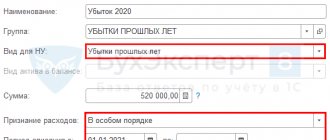Is it possible to change the date of dismissal?
Free legal consultation We will answer your question in 5 minutes!
Free legal consultation
We will answer your question in 5 minutes!
Ask a Question
Call: 8 800 511-39-66
As a general rule, the date of dismissal from office cannot be changed. It shifts only taking into account holidays or weekends. The parties can agree on a specific date of dismissal only if they formalize the termination of the contract by agreement of the parties.
Thus, the dismissal date is determined as follows: it always falls on a weekday. The exception is situations when an employee cannot go to work for valid reasons. The HR department should carefully check whether the dismissal date falls on a working day or a weekend to avoid violations of the law, resulting in fines and lawsuits.
Dismissal for absenteeism
Discrepancies in the interpretation of legal norms also arise in the case when an employee is dismissed for absenteeism, after which he never began to fulfill his work duties. This is due to the fact that it is unclear what day to indicate in the work book: the date when the person was last present at the workplace, the date of absenteeism, or the date the dismissal order was issued.
Expert commentary
Platonov Alexander
Lawyer
In practice, the fact of absenteeism is often established only the next day, or even after some time. For example, an employee was absent without a valid reason on Friday, February 12th. This became clear only on Monday, February 15, when his location was established and an explanatory note was taken. However, he never began his duties, that is, in fact, his last working day was Thursday, February 11. The truancy order was issued only on Tuesday, February 16th.
There is no unambiguous interpretation regarding this point in the legislation. On the one hand, Art. 84.1 of the Labor Code of the Russian Federation says that the day of termination of an employment contract is the last working day, with the exception of cases where the employee retained his workplace or position.
The letter from Rostrud dated July 11, 2006 also explains that when fired for absenteeism, the date when the employee last actually appeared at work is entered in the work book. It is believed that in this case, issuing an order later than the date of dismissal will not be a violation of labor laws. Therefore, it is acceptable to date the entry for the last working day on February 11.
Some personnel officers prefer to play it safe and set the date for issuing the dismissal order as the last working day. They argue that until an explanatory letter is received from the truant, they cannot be fired. Consequently, his job is retained legally.
There is no uniform practice on this issue. However, there are court decisions confirming the legality of dismissal on the last day before absenteeism. But this should only be done if an explanatory note has been received from the employee, and the reasons for absence can definitely be interpreted as disrespectful. If the employee worked for some time after absenteeism, and only then was dismissed under the article, then the date of dismissal will coincide with the last working day.
Is it necessary to work on the day of dismissal?
Since the last day of dismissal is considered a working day, the employee must work it. Usually at this time the cases are completed and transferred, the calculation and work book are issued.
This is also important to know:
Dismissal under a fixed-term employment contract: procedure and features of the procedure, working period
The employer has the right to release the citizen early if he has time to transfer all his affairs.
Features of working off upon dismissal
Upon dismissal, an employee leaving the company is legally required to work a certain number of days. The duration of work can vary from three to fourteen days; some categories of citizens have the right to leave the company in one day without working at all. Those who will have to interact with the employer for some time after the application are very interested in the following questions:
- what day does the work start?
- can working hours include weekends and holidays;
- Is it possible to quit without working in principle;
- how to correctly determine the last working day.
We will answer each of the questions in turn.
The days of service are counted from the day following the submission (registration) of the resignation letter. The law does not say that the employee must work during the working days; thus, working days may include days off and holidays, days of paid or unpaid vacation and sick leave days. Certain categories of citizens have the right to resign without service, namely:
- persons of retirement age;
- women expecting a child;
- mothers and other persons who are adoptive parents of one or more children under the age of 14 years.
In addition, citizens who do not belong to the above categories also have the legal right to leave the company at any day. They can do this when specific life circumstances occur:
- admission to study at a higher education institution or other educational institution for a bachelor's or master's degree in a full-time education department;
- the arrival of the appropriate age (55 years for women and 60 years for men) and the employee’s retirement;
- violation by an employee of the rules of the Labor Code or the provisions of local labor or collective contracts;
- moving to another area to a new place of residence for the purpose of employment or for medical reasons;
- emigration of a spouse for employment abroad;
- obligations to provide care for a family member in a state of incapacity, a child in a state of disability, or a child whose age does not exceed 14 years.
If the employee does not belong to any of the listed categories, but he has a very strong desire to part with the company as soon as possible, you can try to negotiate with management directly. In some cases, the parties find the possibility of a compromise, and the desire to leave the company without working at all turns out to be feasible.
The author’s personal practice shows how you can use to your advantage the provisions of the Labor Code, according to which the working period includes weekends and holidays. The author of these lines once had to submit a letter of resignation from the company on the eve of the long New Year and Christmas holidays. The application was submitted on December 28, due to which almost the entire period of fourteen-day work fell on weekends and holidays. This simple method can help reduce the amount of work required upon dismissal, because the law does not require a citizen to work directly on the days of service. In the case where the work is only three days, by selecting the date for submitting the application in a certain way (for example, before the May holidays), you can ensure that all the work will take place on weekends, after which you can safely come to the company for payment and payment due documents. Of course, the employer may not like this very much, but in such a situation everyone is free to set priorities on their own.
Determining the last working day is very simple. It is enough to count the days of work, starting from the day following the day of filing the application. The last day of work will be the last working day in the company, as well as the day of dismissal.
In most cases, employees of the enterprise’s personnel department are able to answer any questions regarding the dismissal procedure. They are interested in ensuring that the dismissal is completed correctly, so they readily provide application templates and advise on the intricacies of the process.
Video: is it necessary to work for two weeks when leaving the company?
What is an employee required to do during the working period?
If an employee resigns voluntarily, he must perform his job duties for another two weeks. Work begins the next day after submitting documents to the employer. The working hours do not change; the employee has the right to days off. Also at this time he may get sick or go on vacation.
The following have the right to leave without work:
- pensioners;
- pregnant women;
- adoptive parents of minors under 14 years of age;
- persons admitted to an educational institution for full-time study;
- employees subject to disciplinary liability;
- workers moving to another region or abroad;
- citizens caring for a disabled person or a child under 14 years of age.
So, the parties have the right to agree on dismissal without work. In addition, there is a special category of persons who are not required to work. They have the right to leave the employer at first request.
If an employee asks to be fired voluntarily
Article 80 of the Labor Code of the Russian Federation allows an employee to terminate legal relations with the employer at his own request. However, dismissal must be preceded by notification to the employer of the employee’s decision. The period for such notification is established by the legislator and is 2 weeks.
In this case, the parties to the labor relationship can independently come to an agreement that this period will be reduced.
In addition, under certain circumstances, the employer is obliged to sign an order to terminate the employment agreement and dismiss the employee on the date specified by him. Such circumstances include:
- admission of a resigning person to an educational institution;
- retirement;
- change of residence to another city or region;
- the health status of dependents and family members requiring care from the employee;
- violations of the law by the employer, etc.
When writing a letter of resignation at your own request, you must keep in mind that the fourteen-day warning period established by law does not begin to be calculated from the day on which the letter was actually written by the employee. The countdown of the period will begin from the date following the one on which the employer received the application.
Therefore, there are often situations when the date of termination of legal relations coincides with a weekend or holiday. Correctly calculating the date when submitting an application in person does not cause any difficulties, but if the request for dismissal is sent, for example, by mail, then such coincidences may well occur.
When indicating in the application a specific date for termination of the employment relationship, for example, if the parties have agreed on this issue, you should write “I ask you to fire me on May 30” and not “I ask you to fire me from May 30”, since in the second case there may be discrepancies regarding , whether to consider May 30 as the last working day.
Questions
When is final payment due?
Full payment is made to the employee at the time of leaving work. He is given a work book, the requested documents, and is also paid wages for the time worked. Additionally, compensation is provided for unused vacation.
When laid off, the employee receives severance pay and payments for 2-3 months. If a citizen is absent from the workplace, the payment is issued the next day or upon his first request.
What happens if you violate the terms of payment upon dismissal?
It happens that companies violate deadlines and do not make payments on the day of dismissal. In case of absenteeism of an employee, the company is not subject to punishment, since the employer’s actions are not at fault.
This is also important to know:
Termination of an employment contract at the initiative of the employer, Article 81 of the Labor Code of the Russian Federation
For violation of the final payment deadlines, the organization will be punished in accordance with administrative legislation. The fine amount is from 1,000 rubles. up to 50,000 rub. The employee also has the right to file a civil lawsuit to recover penalties. It is 1/150 of the refinancing rate of the Central Bank of the Russian Federation. For a delay in issuing a work book, the company will pay compensation in the amount of average earnings for the entire period of delay.
How to write a resignation letter?
The resignation letter is written in any form. It is advisable to calculate the moment of termination of the contract so that it coincides with weekdays. It is recommended to specifically state the date of dismissal without the preposition “from”: “I ask you to dismiss at your own request on January 25, 2019.”
Is it possible to find a compromise with an employee if the day of dismissal falls on a weekend?
It happens that dismissal must be formalized on a weekend or holiday. The employee may be against moving the date of termination of the employment contract forward. Especially if he has agreed on employment at a new place of work.
In such a situation, it is possible to terminate the employment relationship by agreement of the parties by agreeing on a more convenient day. In this case, the employee will no longer be able to withdraw his resignation letter of his own free will, but he does not have to work for 2 weeks.
Standard cases and terms of termination of the contract
Application at your own request
If an employee decides to resign on his own, then by law he is required to notify management about this two weeks (14 calendar days) in advance. In addition, the application for termination of the contract itself usually indicates the day of dismissal. However, employees often have doubts whether the day of dismissal is considered a working day or not. The Labor Code specifies: the last working day is considered to be exactly the date that falls on the last day of such warning.
By virtue of Article 14 of the Labor Code of the Russian Federation, the warning period should begin to count the next day after submitting an application to the company’s personnel service. If, for example, an employee wrote a statement and submitted it to his superiors on December 1, then he must indicate December 15 in it. This will be his last day at work. It is important to clarify that in the application you need to avoid the preposition “with”: you need to write not “I ask you to fire me on December 15,” but simply “to fire you on December 15.” This will make it easier for the personnel officer to navigate when drawing up an order, and the inspectors will not have any unnecessary questions. In addition, this wording serves as protection against discrepancies in the understanding of what day the last working day falls on in the course of possible disputes between employees and employers.
Agreement of the parties
If the parties decide to terminate the employment contract by mutual consent, they also draw up a separate document about this. In this situation, there may be no two-week working period, and any day convenient for both parties for completing professional duties and terminating the employment contract can be chosen. This is what should be indicated in all documents.









